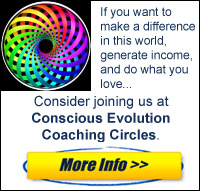Jealousy and Self-Esteem
2010
Recently, a visitor to my informational website, www.wordsculptures.com, commented on her struggles with low self-esteem and jealousy.
I’m 51 and I want to change my mindset. I want to have better self-esteem and bring positive changes into my life.
One thing I really struggle with is jealousy. I hate how it overwhelms me when I feel like I’m losing someone. It’s ruined many a relationship. What can I do?
Jealousy and low self-esteem are such miserable feelings. As my friend implies, they are also intimately connected. We only feel jealousy where our self-esteem is low. Where our self-esteem is high, we simply don’t care what others are doing. We may even join them for the sheer joy of play.
When we feel stupid, we may feel jealous if someone we care about is enthusiastically engaged in conversation with another person. If we believe we’re a poor dancer, we won’t like watching our partner waltz around the floor with someone else.
Once we understand where low self-esteem and jealousy come from, we can change our conditioned thinking and focus on nurturing our self-esteem.
Low self-esteem begins for many of us as children when someone on whom we are dependent (parent, teacher or priest) becomes angry, calls us stupid or hits us for not doing what they want. Because we are small and powerless, we believe they are right and we are wrong. We don’t understand that they are simply treating us the way they have been treated and struggling with their own self-esteem issues. That does not excuse their conduct. It just explains it so that perhaps we can feel a wee bit of compassion toward them, despite the suffering we have experienced. After all, we know from personal experience how miserable low self-esteem feels.
Early childhood dynamics create other relationship issues that carry over into adult lives. We come to believe that our wellbeing depends on doing what our abuser and controller wants – what any abuser and controller wants. We come to believe that we will not survive and cannot be happy without him. Then, when the relationship ends, through death, infidelity, or some other reason, our expectations shatter and we have to rebuild our lives – alone, angry, and confused. However, it is out of the dysfunctional ashes of a failed, abusive relationship that self-esteem arises.
Chaos and overwhelm are part of being human. They are friends bringing us messages that there’s something in our lives we need to change. When we listen and figure out the message, we can give ourselves permission to move on to something more pleasant.
Happiness and self-esteem do not come from someone else. They come from within. Nobody can give us happiness and nobody can stop us from having it except ourselves. Just think of the power and control that puts in the hands of each of us separately and all of us together.
I can tell from the way my friend writes that she is well on her way to better self-esteem and a satisfying, dynamic life. She knows what she wants. She’s already half way there. Until we figure out what we want, there is no way we can bring it into our lives.
What steps can each of us take to improve our own self-esteem? Here are some ideas:
- Consciously bring your mind back to the present moment. The present moment is the only moment in which you can choose and act.
- Ask yourself what you want to do now. This does not include changing or hurting anyone else, although you may feel like it. It may include confronting them or setting boundaries. Do you want to go for a walk, beat up a pillow, get your thoughts and feelings out on paper, cry your eyes out? Go do what you want to do and watch your energy shift.
- Write yourself some affirmations and put them where you can see them every day. Affirmations remind you that you already have many skills, talents, and values on which you can build. Do you have beautiful eyes? An excellent mind? Can you draw or paint? Sing well? Are you good with figures? Do you love gardening? Do you take good care of your home? Your family? Are you accountable? Honest? Loyal? If any of these qualities apply to you, write them down in this form: I am loyal. I am trustworthy. You can probably think of many more.
- Set aside a couple of hours to create a vision board. Vision boards keep you focused on your values and what you want to bring into your life. Get yourself a piece of poster board large enough for a collage. Sit down with some old magazines you don’t mind cutting up and cut out anything you like: beautiful homes, seascapes, gardens, exotic places, words that inspire you. When you have a nice pile of cutouts, arrange them into a collage on the poster board, then paste them down. If you want, you can have the vision board laminated for durability. Put it where you can see it every day.
- Notice the people with whom you spend time. Are they accountable, trustworthy and supportive or do they shout at you, call you names, and hit you? Do you feel energized in their presence or drained? Move out of relationships that drain you and seek out those that support you and help you move along your path in life.
- Trust yourself and love yourself. You are a unique human being who has much to offer this planet – things that no one else can. If you don’t do them, no one else will. Think big – bigger than you ever believed you could – and then move toward your vision and purpose, one little present moment step at a time.
 And I failed at drumming.
And I failed at drumming. Drumming is a practice that uses sound, rhythm, and vibration to heal. By fully immersing oneself in the experience, the drummer can enter into an altered state of consciousness that is sometimes verbalized as “journeying between the physical and spiritual worlds.”
Drumming is a practice that uses sound, rhythm, and vibration to heal. By fully immersing oneself in the experience, the drummer can enter into an altered state of consciousness that is sometimes verbalized as “journeying between the physical and spiritual worlds.”

Comment